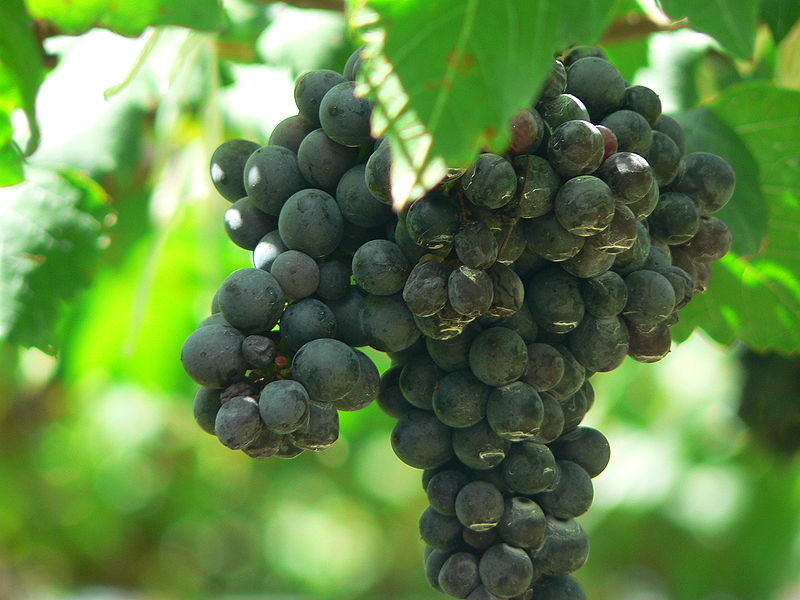Tasting Highlights' wine reviews are fresh out of the tasting room, offering a sneak peek of our editors' most recent scores and notes to WineSpectator.com members.
At the slightest hint of warm weather, there's a kind of instinctive need to reevaluate our wine choices and start looking to lighter-bodied, more refreshing bottles than what we've been drinking to get us through the winter. For many, this means a glass of rosé. While Provence has gained the most popularity for the category, many other regions in France make standout examples. Today's selections hail from the Rhône, the Loire, Savoie and Bordeaux, and are diverse in style, from bold and fruity to fresh and minerally.

LES VIGNERONS DE TAVEL Tavel Cuvée Royale 2018
WS review: Forthright, offering a bold display of fresh cherry, strawberry coulis and damson plum flavors, ending with zip and focus on the stony finish. Drink now through 2020. 400 cases imported.
Why it's of note: Tavel is a historic rosé-producing region, and one of the only appellations in the world that is solely dedicated to rosé. It makes more extracted styles than your typical Provençal version. The Vignerons de Tavel cooperative, founded in the 1930s, has around 100 vintners working within it today. This Cuvée Royale bottling was made with grapes grown in the signature galets stones found in Southern Rhône vineyards.

REGIS JOUAN Sancerre Rosé 2018
WS review: An expressive, racy style, featuring white cherry, rose water and sea salt accents. Bone-dry, with a bitter cherry pith note on the finish. Drink now. 200 cases imported.
Why it's of note: While its Sauvignon Blancs are Sancerre's best-known wines, the appellation also grows Pinot Noir, which makes rosé as well as some red wine. Régis Jouan is a fifth-generation winemaker based in the town of Sury-en-Vaux in the Loire Valley. This aromatic version is a great introduction to rosé Sancerre's style. Pair it with smoked andouille sausage, or enjoy on its own as an aperitif.

E. GUIGAL Côtes du Rhône Rosé 2018
WS review: Bright and easy, with strawberry and white cherry fruit flavors set on a rounded frame. Reveals a light stony echo on the finish. Drink now. 8,750 cases imported.
Why it's of note: Grenache is the pillar of red wines in the Southern Rhône, but it is also well-suited to rosé production throughout the valley. Its presence in a blend often adds bright fruit notes, including in this version from E. Guigal, a lauded producer who has been making wine throughout the Rhône since its founding in 1946.

PHILIPPE VIALLET Vin de Savoie Rosé 2018
WS review: Friendly peach and white cherry notes glide through, with a light stony hint giving the finish just enough cut. Drink now. 4,300 cases imported.
Why it's of note: Philippe Viallet's family has been making wine in Savoie since 1966, in the town of Apremont. Today, Viallet strives to limit his winery's environmental impact, through waste treatment, solar paneling and low-carbon architecture. This rosé is made from the Gamay grape, more typically seen in Beaujolais, and exemplifies Savoie's easygoing style of rosé.
CHÂTEAU LA FREYNELLE Bordeaux Rosé 2018
WS review: Fresh, offering white cherry and watermelon rind notes, with a flicker of herb on the open-knit finish. Drink now. 1,000 cases imported.
Why it's of note: Bordeaux, known today for its full-bodied reds, has a long history with "rosé" winemaking. Indeed, the British term "claret" for Bordeaux was coined when the region's red wines were much paler in color—like a dark rosé, if you will. This (real) rosé is made by Véronique Barthe, Château La Freynelle's winemaker, which has more than 120 acres of red-grape vineyards in Entre-Deux-Mers, a region better known for its white wines.

MICHEL GASSIER Costières de Nîmes Rosé Château de Nages Buti 2018
WS review: White cherry, strawberry core and savory notes mingle in this juicy, direct rosé. Drink now. 1,200 cases imported.
Why it's of note: This wallet-friendly rosé is a perfect picnic (and poolside when the time comes!) sipper, for wine drinkers who like juicy, fruity styles. The Gassier family, who are in their fourth generation of making wine, are behind this Château de Nages bottling. Its savory notes would pair well with cheese—think a Beaufort with a side of table grapes.

CHÂTEAU VAL JOANIS Lubéron Rosé 2018
WS review: A light and bracing rosé, with watermelon rind and savory notes. Drink now. 2,000 cases imported.
Why it's of note: Lubéron is an appellation located between the Rhône and Provence; its rosés can show characteristics of both regions. It is hot down here, but breezes from the Mediterranean keep vines cool at night, preserving freshness in the resulting wines. Château Val Joanis is a beautiful estate with a French-style manicured garden. You can sip this racy rosé while imagining you're there.

